
June 11, 2024

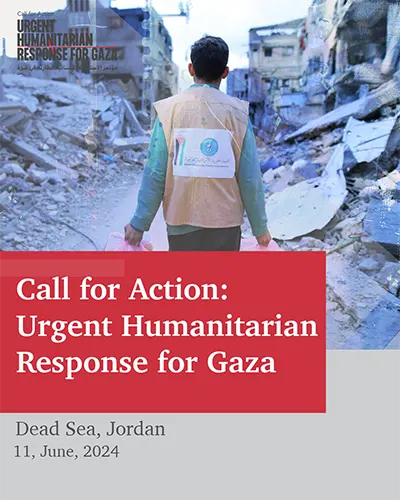
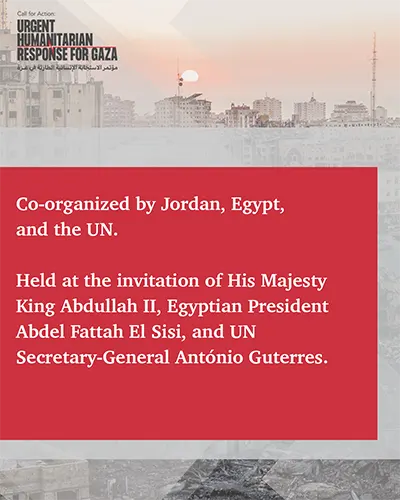
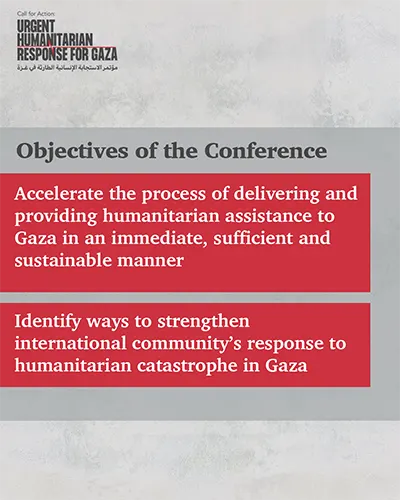
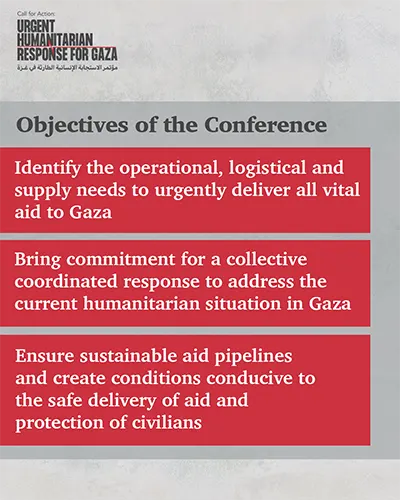
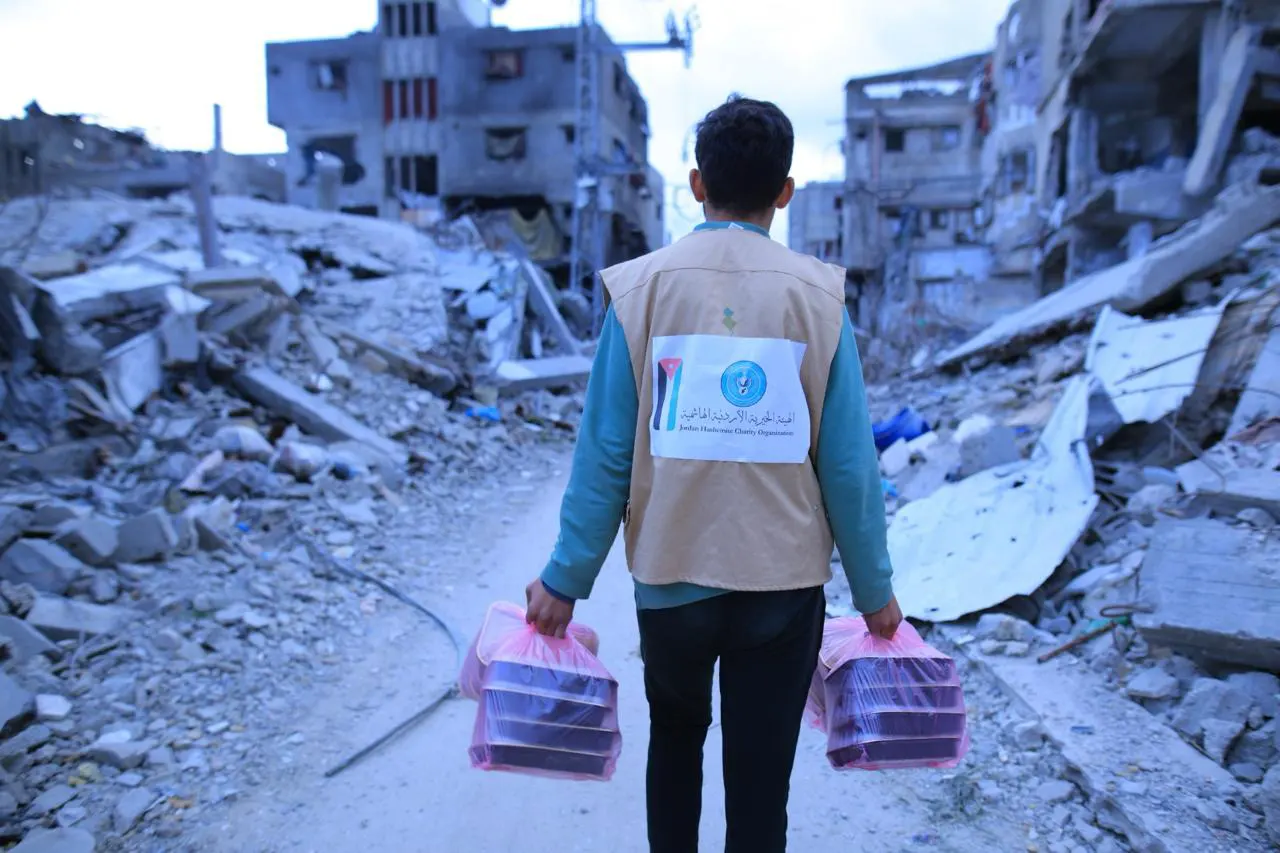
Overall Objective:
In light of the funding needs per sector as identified within the UN Flash Appeal, and in view of current humanitarian needs and funding gaps, the objective is to articulate minimum requirements for ensuring sustained, predictable and sufficient supplies of humanitarian assistance can reach into and throughout Gaza, via land and sea routes and in line with Security Council Resolution 2720 (2023).Co-Facilitators:
Senior Humanitarian and Reconstruction Coordinator for Gaza Sigrid Kaag, His Excellency Minister of Foreign Affairs Sameh Hassan Shoukry, and His Royal Highness Prince Rashid bin El Hassan.Keynote Speakers:
WFP Deputy Executive, Director Carl Skau. Egyptian Red Crescent CEO, Dr. Amal Emam. Commissioner for Crisis Management in the European Commission, Janez Lenarčič.Overall Objective:
In line with previous calls for an immediate ceasefire and based on existing constraints to the safe and effective delivery of aid, outline the minimum requirements for ensuring conditions conducive to the safe and effective distribution of aid inside Gaza, including those related to protection of civilians, and humanitarian staff.Co-Facilitators:
His Excellency Deputy Prime Minister and Minister of Foreign Affairs Ayman Safadi, and Emergency Relief Coordinator and USG for Humanitarian Affairs Martin Griffiths.Keynote Speakers:
RC/HC, Muhannad Hadi. ICRC President, Mirjana Spoljaric Egger. Palestinian Red Crescent Society, President Younis Al Khatib. Deputy High Commissioner for Human Rights (OHCHR), Nada Al-Nashif.Overall Objective:
Discuss opportunities to support early recovery priorities identified at the country level that will bring back dignity to people in need and help them regain their rights, such as the right to education, shelter, primary healthcare and psychosocial support.Co-Facilitators:
Prime Minister of the State of Palestine Mohammad Mustafa, Secretary-General for Diplomatic Affairs & Expatriates Majed Alqatarneh, and UNRWA Commissioner-General Philippe Lazzarini.Keynote Speakers:
UNDP USG Associate Administrator, Haoliang Xu. IFC Regional Vice President, Middle East, Central Asia, Türkiye, Afghanistan, and Pakistan, Hela Cheickrouhou. UN Women Executive Director, Sima Bahous. UNFPA Executive Director, Natalia Kanem.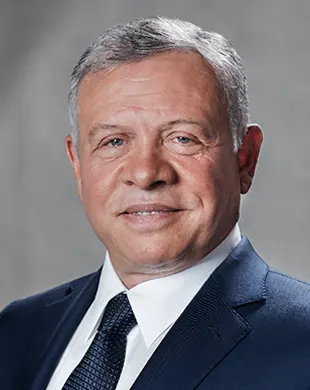
His Majesty
King Abdullah II of Jordan
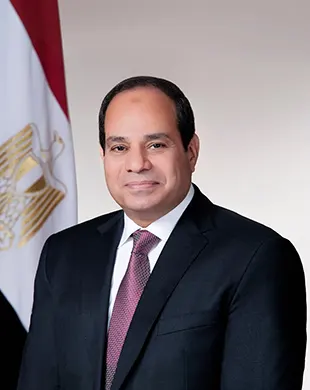
His Excellency President
Abdel Fatah el-Sisi of Egypt
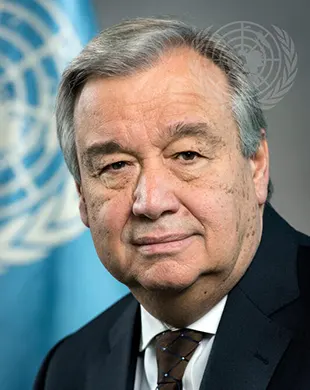
His Excellency United Nations
Secretary-General António Guterres